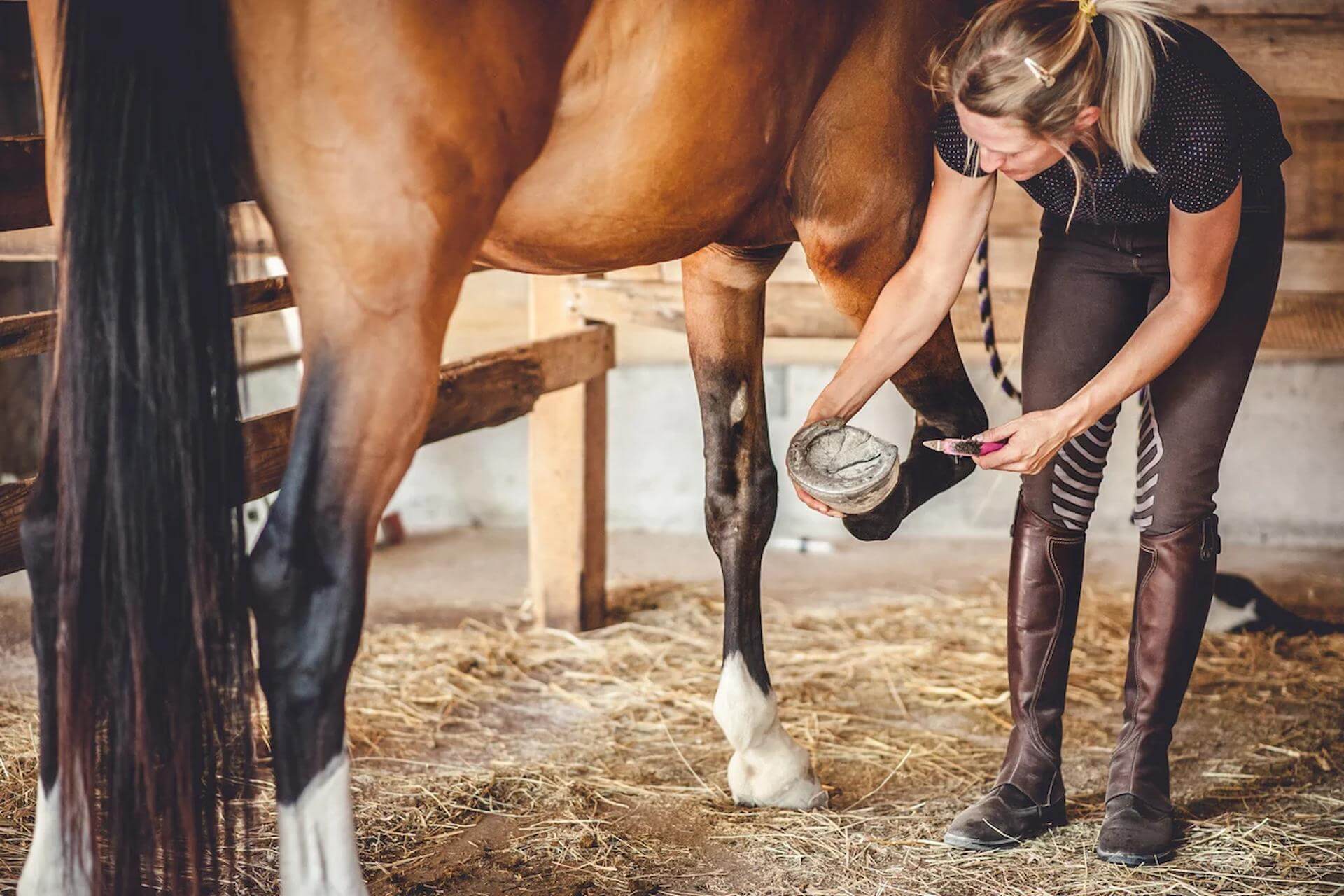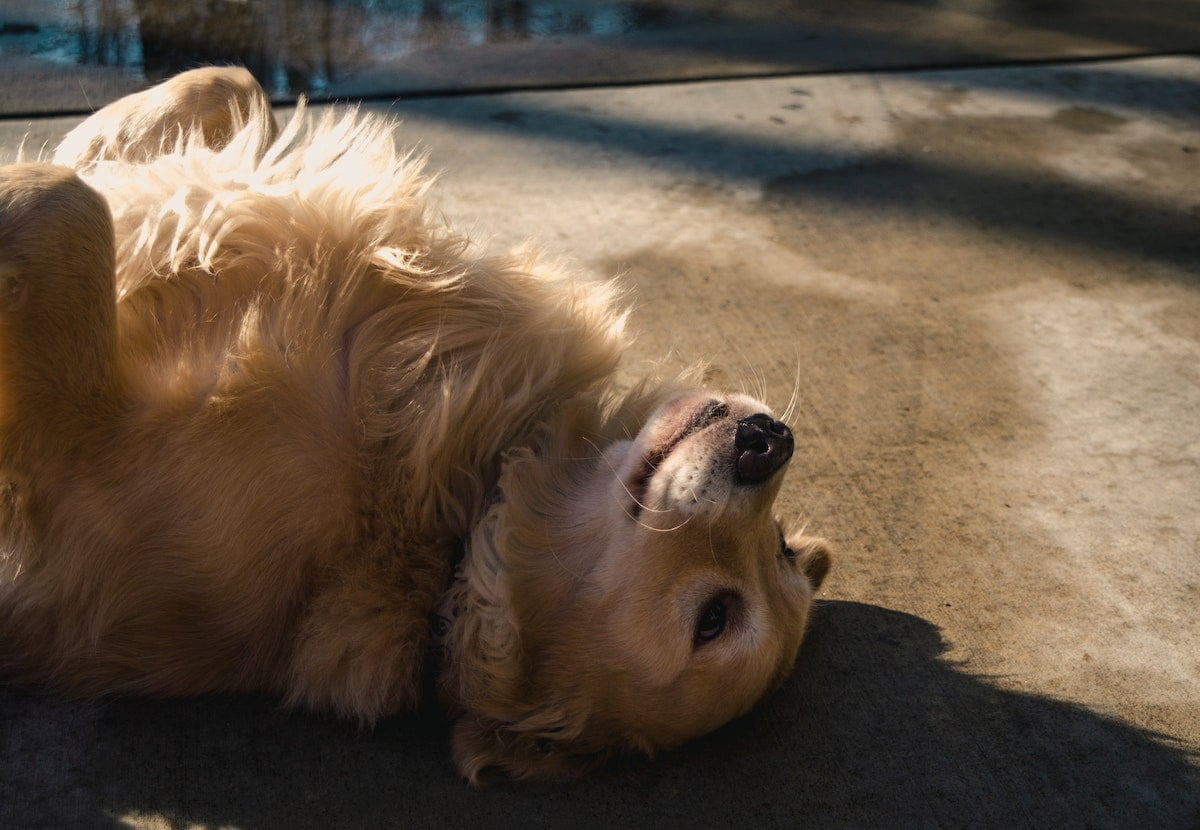Can You Feed A Laminitic Horse Alfalfa?

Laminitis is a condition that many horse owners will be aware of, and knowing how to identify and manage it is essential. There are a range of ways in which you could do this, with dietary adjustments being one of the most important for ensuring your horse is getting the nutrients needed for optimal health and well-being. But there is a question that surrounds this condition – Can you feed a laminitic horse alfalfa? Read on to find out more.
Laminitis: What is it?
Laminitis is a condition that affects a horse’s hooves. It’s caused by inflammation within the soft tissue – the laminae – that connects the hoof wall to the bones within the hoof. Mild cases of this condition can be painful and cause discomfort, and if not identified and managed correctly can progress into a severe issue that causes permanent lameness and changes to hoof integrity.
There are several factors that can contribute to a horse suffering from laminitis, including dietary related factors. These include consuming large amounts of non-structural carbohydrates such as high starch feeds. Obesity and insulin resistance can also increase the risk of laminitis as levels of glucose and insulin in the blood are elevated. Being overweight puts unnecessary stress on the hoof structure and increases the chance of pedal bone rotation if the laminae are damaged. Endocrine diseases like Cushing’s disease (PPID) can lead to hormonal imbalances that may contribute to laminitis too. Various systemic illnesses may also lead to this condition, as well as increased trauma to the hooves.
Early identification is crucial if you suspect your horse has laminitis, as this enables you to seek help from a professional who can guide you with the next steps and aid in the management of the condition.
Can you feed a laminitic horse alfalfa?
Laminitic horses may require a change in diet if the condition has been identified to have been brought on by dietary factors or obesity. This is where feeding alfalfa can be helpful. Alfalfa is a legume and is in the same plant family as peas and beans which means it is a great source of amino acids which are the building blocks of tissues such as muscle. This type of forage offers a range of benefits for horses, even those suffering from laminitis.
The main benefit that comes with alfalfa is that it is naturally low in sugar and starch in contrast to grass-based forages. When plants photosynthesise, they produce sugar that they either use to grow or store for later use. In grass, sugar is stored in leaves and stems as water-soluble carbohydrate (WSC) which is a risk factor for laminitis. In alfalfa, any surplus sugar is converted to starch but it is stored in the roots which is a part of the plant the horse doesn’t eat!
Alfalfa provides a low-sugar alternative to cereals that may be added to a horse’s diet for additional energy to support work or maintain bodyweight. Because cereals are high in carbohydrates such as starch, they can lead to digestive issues and laminitis. In contrast, alfalfa is high in easily digestible fibre and provides a good level of energy, whilst being low in starch and water-soluble carbs. It’s packed with protein and trace minerals essential for a balanced diet. This makes alfalfa an option for laminitic horses.
Adjustments to a laminitic horse’s diet
When it comes to managing laminitis, your horse’s diet is crucial. Whilst it’s always essential to consult your vet or equine nutritionist before making any changes to a laminitic horse’s diet, there are a few factors to consider, including:
Low-sugar Forage: Ensuring you provide low-sugar forage for your laminitic horse is essential, It helps to maintain a healthy gut and satisfies your horse’s need to chew. Provide better quality forage to supply energy without the need for feeds high in starch for those in work or needing to gain weight.
Ensure a minimal forage intake: If you need to reduce your horse’s access to forage to manage their weight, ensure you supply a minimum of 1.5% of body weight per day. This helps to ensure sufficient fibre is fed to maintain digestive health.
Balanced nutrition: If you decide to feed your laminitic horse alfalfa, they may well still need a supplement or balancer to provide the range of vitamins and minerals that may be deficient in soils in the UK. You should always make sure your horse’s feed includes essential nutrients for an all-round balanced diet.





